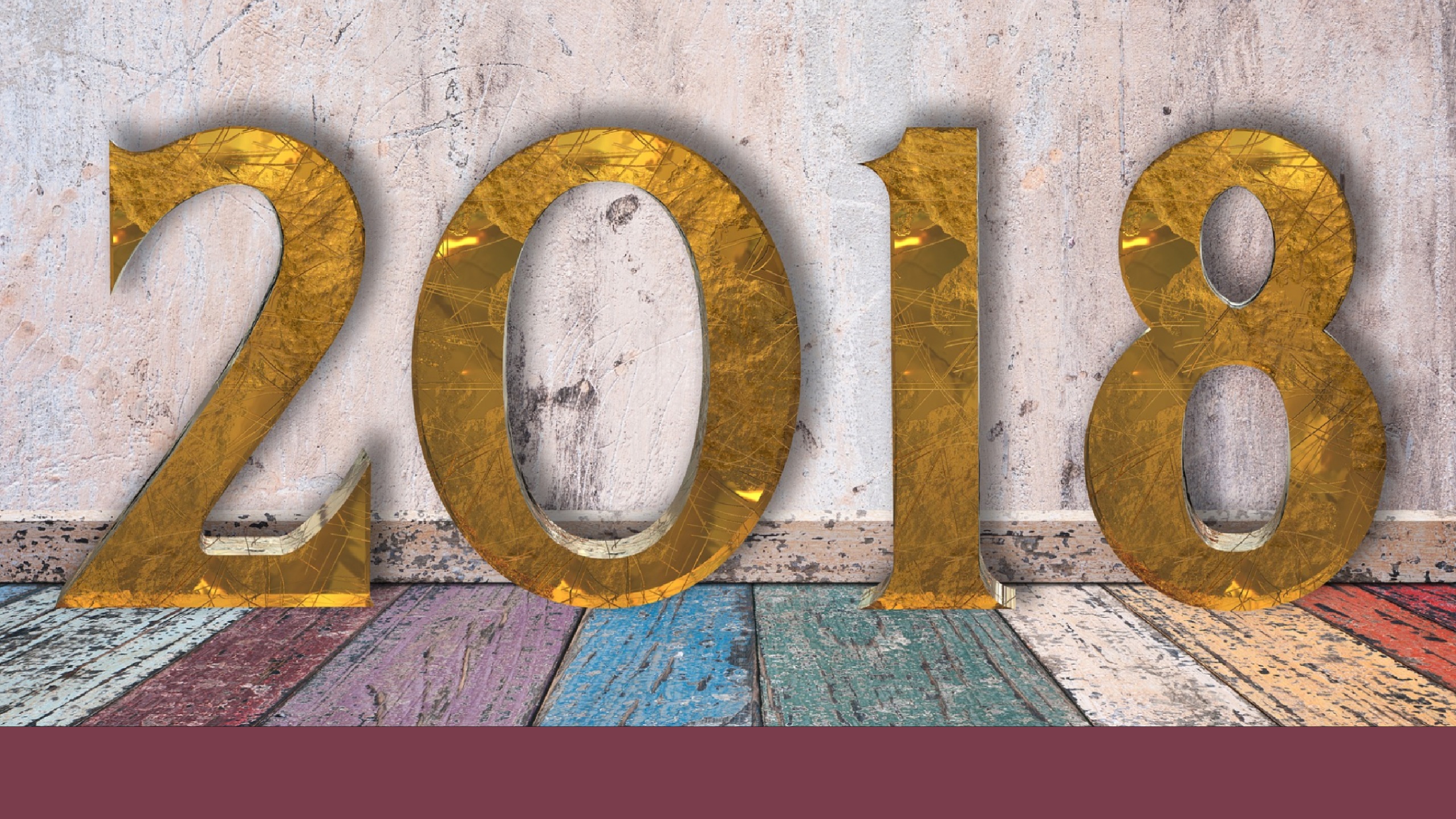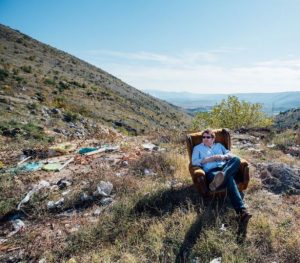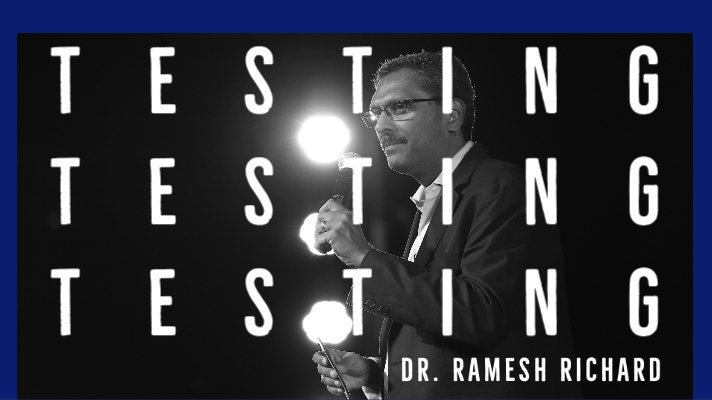
Women, Proclaim! The Need for Equipped Female Leaders
January 9, 2018
4 New Year’s Resolutions for Your Church
January 16, 2018Power and Weakness, Control and Care within the Corporate

We’ve carried on wending our merry way though Bonhoeffer’s Life Together (from which I’ve posted before) where there have been gems and provocations aplenty. This week, we followed his unpacking of the problems of competitiveness and one-upmanship, as part of his reflections on Luke 9:46. He is entirely realistic. He warns that every single community will always be infected by concerns about ‘who is the greatest’ – even if the criteria by which we judge greatness differ widely. And this has got me thinking yet again about the problems of power and weakness, control and care in church (issues to which I find myself returning repeatedly on Q).
This is a salutary warning but contains a profound insight about how the gospel of grace must always be the bedrock of Christian community.
Justification in the Community
All this can occur in the most polite or even pious environment. But the important thing is that a Christian community should know that somewhere in it there will certainly be ‘a reasoning among them, which of them should be the greatest.’ It is the struggle of the natural man for self-justification. He finds it only in comparing himself with others, in condemning and judging others. Self-justification and judging others go together, as justification and grace and serving others go together. (p70 my emphasis)
A key practical outworking of this is what he calls ‘the ministry of holding one’s tongue’! Look out he continues:
Where this discipline of the tongue is practised right from the beginning, each individual will make a matchless discovery. He will be able to cease from constantly scrutinising the other person, judging him, condemning him, putting him in his particular place where he can gain ascendancy over him and thus doing violence to him as a person. Now he can allow the brother to exist as a completely free person, as God made him to be. His view expands and, to his amazement, for the first time he sees, shining above his brethren, the richness of God’s creative glory. God did not make this person as I would have made him.,He did not give him to me as a brother for me to dominate and control, but in order that i might find above him the Creator. Now the other person, in the freedom which which he was created, becomes the occasion of joy, whereas before he was only a nuisance and an affliction. God does not will that I should fashion the other person according to he image that seems good to me, that is, in my own image; rather in his very freedom from me God made this person in his image. (p71)
 Of course what we say is just a tiny part of how we regard others – and indeed ‘the other’. But as one of our group mentioned in our discussions, it all comes down to how we approach people – are we ultimately concerned with power (i.e.getting people to bend to my will, perspective, agenda) or with love ( i.e.wanting the best for them by serving their best interests). Love doesn’t preclude leadership or pointing in a particular direction. But we kid ourselves too often – especially if we sense a threat to our status or reputation from the other. If there is a threat, then we’ll always be judging and putting down, competing and self-justifying. If we’re confident in Christ, then we won’t need to do this.
Of course what we say is just a tiny part of how we regard others – and indeed ‘the other’. But as one of our group mentioned in our discussions, it all comes down to how we approach people – are we ultimately concerned with power (i.e.getting people to bend to my will, perspective, agenda) or with love ( i.e.wanting the best for them by serving their best interests). Love doesn’t preclude leadership or pointing in a particular direction. But we kid ourselves too often – especially if we sense a threat to our status or reputation from the other. If there is a threat, then we’ll always be judging and putting down, competing and self-justifying. If we’re confident in Christ, then we won’t need to do this.
So it seems that one of the reasons we find self-righteousness so ugly and off-putting is that it is inherently competitive and assertive. It brooks no rivals. Justification by faith and grace will never lead to that, properly understood.
When Weakness Brings its own Power

One of the most striking thing in the few pages we read this week was almost a passing comment – but it reflects much of the Western mentality when it gets mired in the depths of identity politics. Now, please don’t misunderstand. Such political battles have their place where they are the means by which injustices and persecutions are curtailed. But it is a realm not without its inherent dangers. In his discussion of the diversity of the community, Bonhoeffer notes the various axes that we use for mutual comparison (e.g. gifting, sociability, influence). Note what he says about the strong and the weak (however defined):
There is no time to lose here, for from the first moment when a man meets another person he is looking for a strategic position he can assume and hold over against that person. There are strong persons and weak ones. If a man is not strong, he immediately claims the right of the weak as his own and uses it against the strong. (p69 my emphasis)
Victimhood is a reality, minorities do tend to get a raw deal, those who are different do find belonging hard. But there is a warning here not to abuse this – because if so, all one is doing is playing the same power game, not the life of love. My grievance is not so much that I’ve been abused, but that I don’t have power. So just as a poor person can be just as (if not more) materialistic than a rich person, so can a weak person be as obsessed with gaining power as the strong person is in maintaining it. I do believe that much of the ideological history of the twentieth century simply proves the point (as I’ve mentioned more than once on Q).
The only way, in the corporate large and local, is not control but love. Which probably sounds naïve in the extreme, and is certainly risky. It’s the sort of thing that gets you crucified if you’re not careful…
ABOUT THE AUTHOR
 Mark Meynell was born in London and works as a freelance writer, a chaplain in Whitehall, and Director (Europe & Caribbean) for Langham Preaching (part of Langham Partnership). Married to Rachel, they have 2 children – Joshua and Zanna.
Mark Meynell was born in London and works as a freelance writer, a chaplain in Whitehall, and Director (Europe & Caribbean) for Langham Preaching (part of Langham Partnership). Married to Rachel, they have 2 children – Joshua and Zanna.
But the route to return has been decidedly indirect.
- A few childhood years in Kuala Lumpur, Malaysia
- Several more years in East Anglia (Suffolk and then Norfolk)
- Other years in Berkshire, Oxford and Cambridge
- More time in London
- 4 years in local church ministry in Sheffield, South Yorkshire
- 4 years teaching and leading at a newish pastoral training college in Kampala, Uganda (with Crosslinks)
- 9 years on the senior staff of All Souls Langham Place
- And in 2017 we find ourselves back in Berkshire (where Rachel is on the staff of St Mary’s Maidenhead)!


